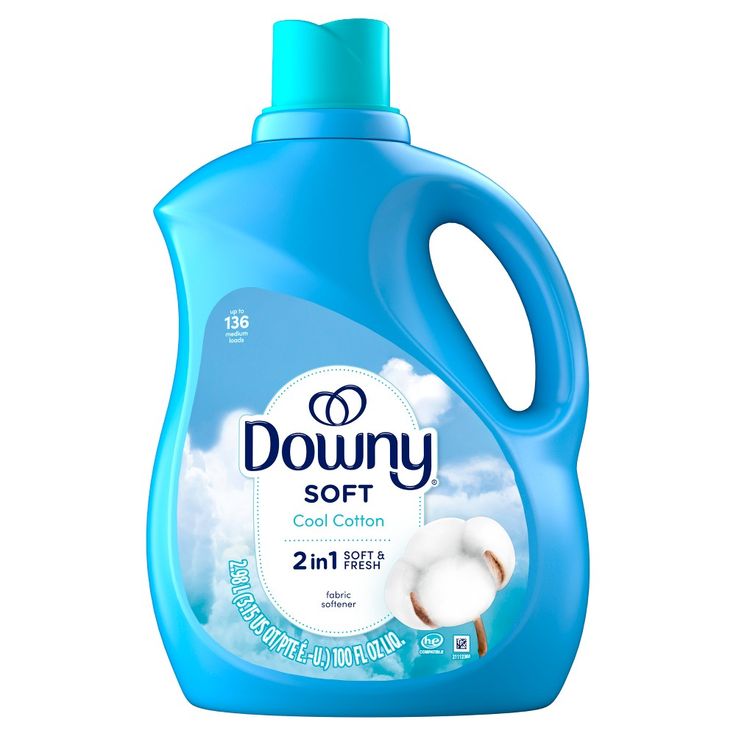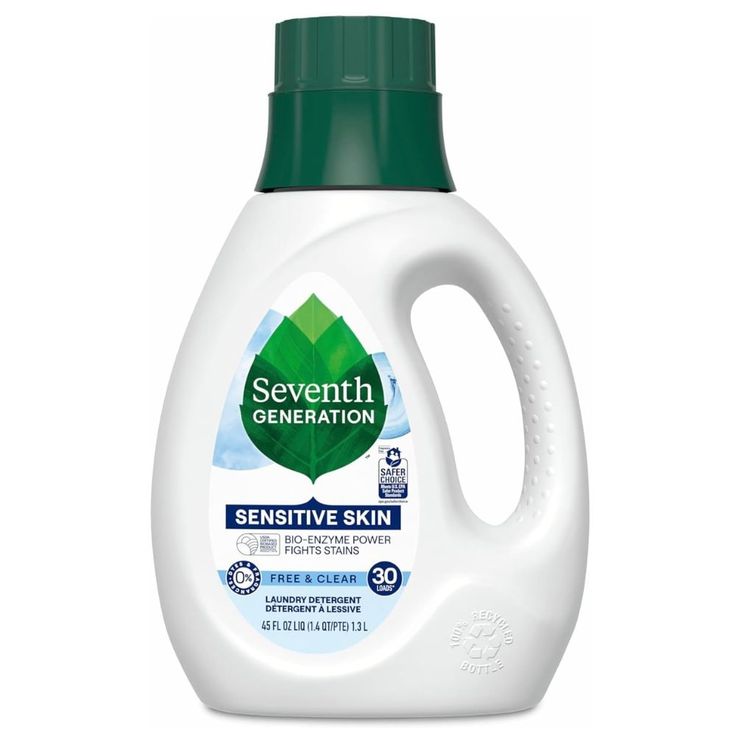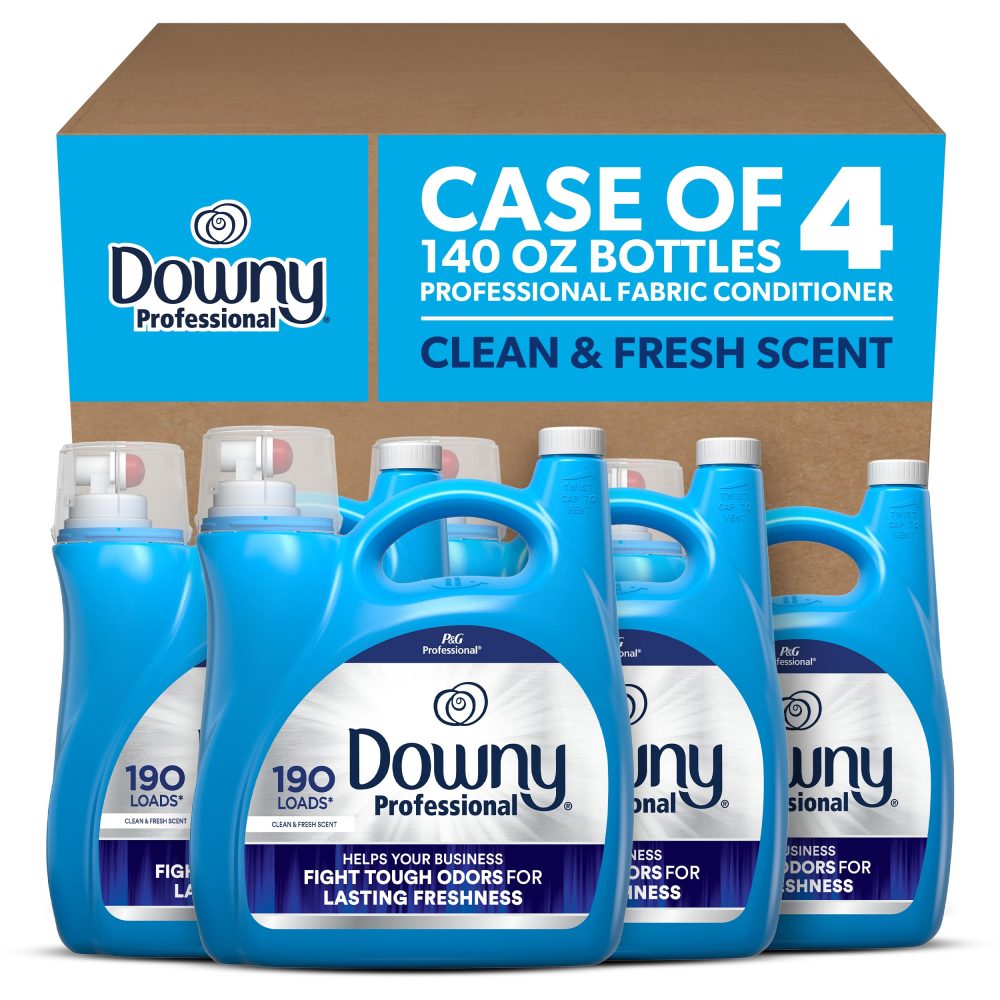The Hidden Risks of Fabric Softener
Is fabric softener bad for your washing machine? Fabric softener may seem like a laundry staple. Yet, it may hide risks for you and your clothes. It’s known for its pleasant scent and smoothing effect. But it can carry harmful chemicals and residues.
Allergic Reactions and Skin Sensitivity
Some people suffer skin irritation from fabric softener. The cause is often fragrances or added chemicals. Board-Certified Dermatologist Dr. Elizabeth Mullans warns about such reactions. She advises against fabric softener for those with sensitive skin. If you have an allergic reaction, stop using the product. You might need to wash your clothes again to remove any lingering residue.
Negative Effects on Clothing Texture and Function
Fabric softener can harm your clothes over time. It coats fibers with a waxy layer, which feels soft. However, this layer reduces the ability of fabrics to absorb moisture. This is bad for towels and workout clothes. They need to be able to absorb well. The buildup from fabric softeners can also trap odors in clothes. High-temperature washes might help remove the residue.

The Impact of Fabric Softener on Washing Machines
While fabric softener leaves clothes feeling soft and smelling fresh, it can harm washing machines. The thick substance can create difficult issues over time.
Residue Buildup and Appliance Efficiency
Using fabric softener regularly leads to waxy residues inside the machine. This residue clogs the pipes and dulls appliance performance. Small amounts add up, eventually cutting down the machine’s efficiency. Over time, this can mean more repairs and higher operating costs. The best washing machines can suffer from reduced lifespan due to this buildup.
Potential for Mold Growth and Maintenance Issues
The slimy residue from fabric softeners can cause mold to grow inside the machine. This is especially true in damp, dark areas like the detergent drawer. Mold poses health risks and makes the washing machine smell bad. To combat this, you might have to clean the machine more often. This means extra maintenance work. It’s also important to note that mold can transfer to your clothes during washing, risking further skin reactions.
Understanding the Cleaning Process
Many people think fabric softener is crucial for a clean wash. It’s not.
Misconceptions About Fabric Softener’s Role
Fabric softener does not clean clothes. It coats them, making them feel softer. This creates a misconception that it helps with cleaning, but it doesn’t. The substance is added in the rinse cycle, acting only as a softener. It’s important to know fabric softener alone won’t clean your clothes.
Alternatives for Softening Clothes
To soften clothes without fabric softener, try natural options. Add 1/4 cup baking soda or 1/4 cup distilled white vinegar to the rinse cycle. Don’t mix vinegar with bleach; it’s dangerous. For a pleasant scent, add a few drops of essential oils to the vinegar. These simple alternatives not only soften clothes but also are safer for your washing machine.

Environmental Considerations
The impact of fabric softeners on the environment is significant and concerning.
Non-Biodegradable Components and Wildlife
Fabric softeners often contain chemicals that do not break down easily in nature. These non-biodegradable components can persist in the environment, causing long-term harm. Wildlife, especially aquatic animals, are at risk. Chemicals from fabric softeners can enter waterways and harm marine life. Using products with fewer harmful substances is crucial for protecting our ecosystems.
Reducing Excess Plastic Use
Most fabric softeners come in plastic packaging. Reducing the use of these products can cut down on plastic waste. Opting for eco-friendly alternatives or making your own softeners can help. This reduces the demand for plastic and benefits the environment. Every small change counts towards a healthier planet.
DIY Alternatives to Fabric Softener
Given the risks associated with traditional fabric softeners, exploring DIY alternatives can be beneficial. These solutions are not only easy to use but also environmentally friendly and cost-effective.
Using Baking Soda or White Vinegar
Baking soda and white vinegar are fantastic alternatives to fabric softeners. Add 1/4 cup of baking soda or 1/4 cup of white vinegar to the rinse cycle of your wash. This will soften your clothes without the harmful effects of chemicals. Note that white vinegar should not be mixed with bleach due to toxic gas production. These substances effectively reduce residue buildup in your washing machine, extending its lifespan.
Creating Natural Fragrances with Essential Oils
For those who enjoy a fresh scent on their clothes, essential oils are an excellent choice. You can add a few drops of your favorite essential oil to the vinegar before adding it to the rinse cycle. This provides a pleasant fragrance without using the heavy chemicals found in commercial fabric softeners. Essential oils like lavender, lemon, or eucalyptus can give your laundry a fresh, natural aroma while avoiding the risks associated with synthetic fragrances.

Money and Health Benefits of Skipping Fabric Softener
Skipping fabric softener offers both financial and health benefits. By avoiding the product, you save money and improve well-being.
Long-Term Savings Explained
Over time, not using fabric softener can add up to significant savings. The cost of buying fabric softener routinely adds up, especially if you prefer premium brands. Furthermore, reducing the need for frequent washing machine maintenance decreases expenses associated with repairs.
By not using fabric softener, your washing machine will experience less build-up, potentially extending its lifespan and saving on future replacement costs. This reduction in maintenance tasks and replacements can contribute to more savings over the years.
The Advantages for Your Well-being
Health advantages of skipping fabric softener are noteworthy, especially for those with sensitive skin or allergies. Abstaining from fabric softener reduces exposure to the harmful chemicals and artificial fragrances it contains, which are known to trigger allergic reactions and skin irritations.
Removing fabric softener from your laundry routine can lead to an overall cleaner home environment. Without the waxy residues that fabric softeners leave, your clothes and towels can perform their functions more efficiently, enhancing personal hygiene and comfort.
Moreover, avoiding synthetic fragrances in fabric softeners can significantly decrease the chance of respiratory issues, providing a safer, more natural living space for you and your family.
Further Tips and Resources
Beyond avoiding fabric softener, there are more ways to care for your laundry appliances.
Guides on Maintenance and Appliance Care
Regular maintenance can keep your washing machine in good shape. Check hoses for leaks or damage. Wipe the detergent drawer periodically. Clean the lint filter after each use. Schedule a professional inspection yearly to catch any issues early.
Run a hot water cycle with vinegar every month. It cleans the washer and prevents residue buildup. Ensure that your machine is level on the ground. An unbalanced washer can lead to unnecessary wear and tear.
Use recommended amounts of appropriate detergents. Overuse can cause residue, while not enough might underclean. For more detailed instructions, look for guides online or consult your washing machine manual.
Recognizing When to Replace Your Washing Machine
Sometimes repair is not enough, and replacement becomes necessary. Pay attention to warning signs. If your machine constantly needs repairs, consider a new one. Other indicators include loud noises during operation, water not filling the drum, or the machine not starting at all. An aged machine that uses lots of water and energy is also a sign.
If the cost of repair is more than half the price of a new machine, it’s time to replace it. Changes in laundry needs, like a growing family, might require a machine with a larger capacity.
If your washing machine struggles with basic functions, consult a professional. They can advise if repair or replacement is the best route. Replacing an old and inefficient washer can save on energy bills and repair costs in the long run. A new machine can also be more gentle on your clothes, preserving them for longer.
In sum, careful usage and regular maintenance extend the life of your washing machine. Avoid fabric softener, follow care guides, and recognize when it’s time for a replacement to keep your laundry day running smoothly.